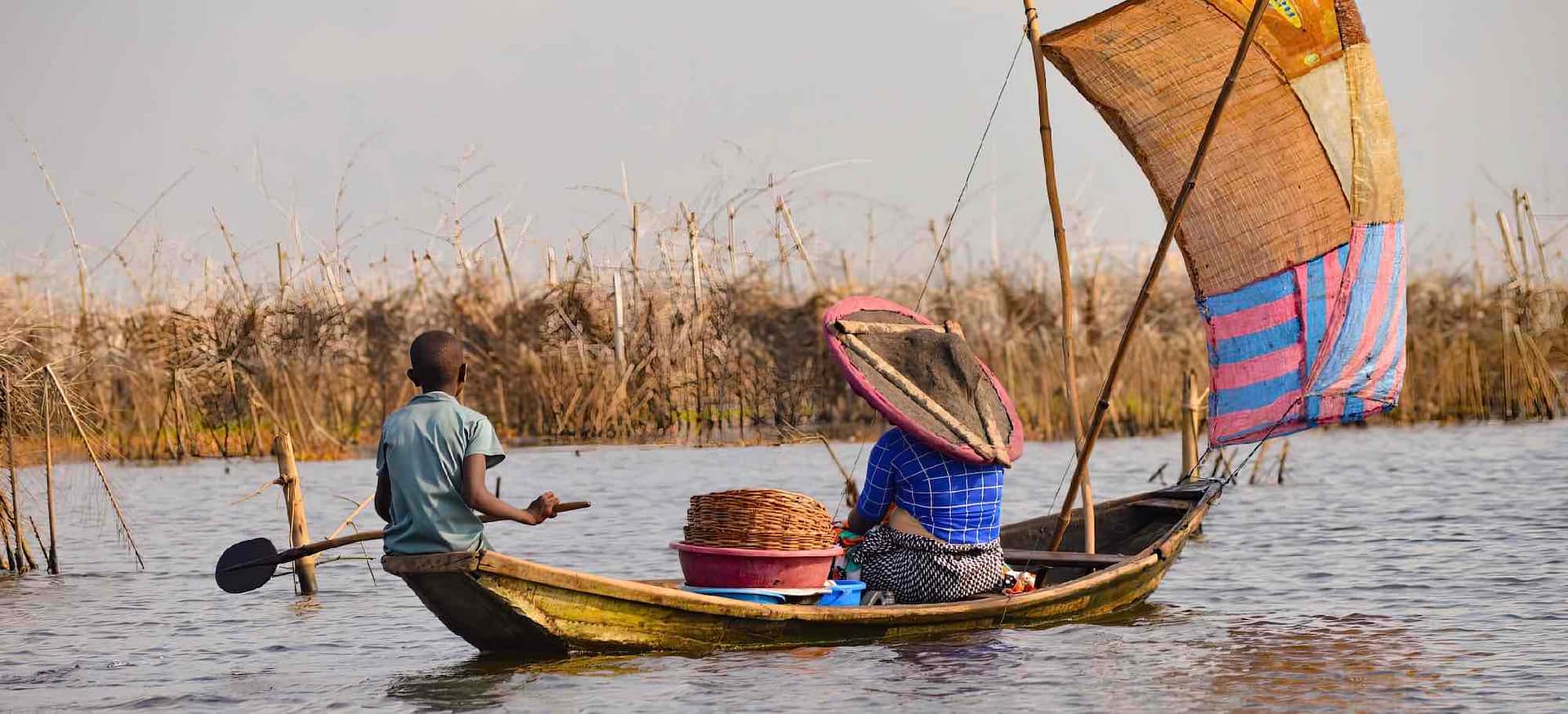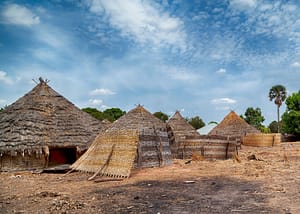
Towards fair deals for communities engaged in the wildlife economy and conservation finance
The global problems of biodiversity loss and climate change have triggered investment and financial commitments from the private and public sectors, but the money rarely goes to local custodians of land and wildlife. These custodians are often Indigenous peoples and local communities who have close ties with the land and a vested interest in ensuring that future generations can still use their natural resources.
In some cases, conservation deals harm the people living on the land through forced displacement and/or by preventing them from accessing natural resources. Ensuring that financial resources support rather than obstruct community conservation is therefore critical to improving the state of the planet while upholding human rights.
Communities and the wildlife economy
While global aid programmes have their place, sustainable wildlife- or nature-based industries that contribute to a ‘wildlife economy’ have emerged as the most promising options for long-term conservation. As with other forms of conservation finance, however, nature-based industries do not always provide substantial benefits to local people.
One of the roles of Community-Based Natural Resource Management (CBNRM) is to give communities a place at the negotiating table with private sector partners who are interested in using their natural resources. In southern Africa, the focus has long been on hunting and photographic tourism rights and concessions, while logging concessions have been more prominent elsewhere on the continent. The trade in non-timber forest products has also gained momentum in Africa in recent years, whereby community members harvest plants, honey or other indigenous plant products for sale beyond their local markets.
Further, companies that use genetic resources (e.g. active ingredients in plants used in cosmetics or medicines) are creating agreements with communities following Access and Benefit Sharing regulations under the Convention on Biological Diversity’s Nagoya Protocol. Communities are thus recognised for their Indigenous and traditional knowledge that played a role in discovering a particular genetic resource.
More recently, the value of natural ecosystems to absorb carbon dioxide has become the basis for voluntary carbon markets that focus on avoiding deforestation. Community entities may receive income or other items (e.g. clean cook stoves) in return for reducing deforestation rates on their land. Extending this principle, some communities are receiving income and benefits based on the presence of wildlife or their ability to preserve the habitat of key wildlife species (known as biodiversity credits or wildlife credits).
Community-based organisations as key negotiators
Regardless of the type of resource use in view, formalised bodies of elected community members known as community-based organisations (CBOs) are the focal point for such agreements. Depending on the country, such agreements could be made directly between CBOs and the private sector or mediated through government authorities, whereby the CBO gets a certain percentage of the income according to national policies.
While creating a space for CBOs to enter negotiations on behalf of their communities is a key outcome of CBNRM, are the deals resulting from these negotiations fair? In many cases, the CBO representatives have little knowledge of the industry they are engaging with, and in places where poverty levels are high even unfair deals can be accepted on the basis that it is ‘better than nothing’. Government-mediated contracts further reduce the ability of CBOs to negotiate, as the terms and conditions of government-private sector partnerships may be unavailable to the CBO.
The principle of Free, Prior and Informed Consent (FPIC) – if implemented correctly – should increase the participation of Indigenous peoples in contracts related to their lands or resources, yet the question of whether the deal they are being offered is fair or not may remain unresolved. Even in countries where CBOs enter into contracts directly with private sector partners and where dashboards are created to share information between the partners, CBOs are rarely able to compare their deals with others. Non-disclosure agreements may prevent such information sharing, reducing the degree to which a CBO is informed about their options.
The CBO is thus in a position of a job seeker who has no idea about what kind of salaries are offered for people with their skills and experience in their industry. While good employers may offer good salaries out of principle, this job seeker may settle for much less than they are worth if they land up working for the wrong people. In the same way, good private sector partners that genuinely want to contribute to conservation and local livelihoods will offer fair deals to CBOs, but how can CBOs protect themselves from bad partners?
New survey for community-based organisations to share information
To fill this gap, Resource Africa in partnership with the IUCN Sustainable Use and Livelihoods Specialist Group has created a confidential survey for CBOs across Africa to describe their respective deals with private sector partners (including for-profit and non-profit entities). Responding CBOs can provide details on the structure of their agreements, including the degree of government involvement, and the value of these contracts to their people in terms of income, jobs, business opportunities, meat and projects as part of the partner’s corporate social responsibility. They are also provided space to elaborate on the pros and cons of particular types of resource use.
While contract conditions are determined by the local context, this survey will provide an industry barometer (akin to a salary guide for workers) that will inform all CBOs on the income and benefits that could be expected from the use of their resources. Ideally, the sample size within each country will be large enough for CBOs to compare their deals with others in the same country, although cross-border and cross-industry comparisons may also yield interesting results for further exploration. The amount of information available to a CBO about public-private contracts that affect them and the degree of government involvement in these partnerships may further provide grounds for CBOs to lobby for more inclusive national policies.
This survey thus strengthens the ‘I’ in FPIC, whereby communities can be adequately informed about resource values and agreement structures that maximise their involvement in nature-based industries and increase their negotiating power. Benefits will also accrue to the private partners in each industry that already provide fair deals, as competitors that offer sub-standard contracts will run out of CBO partners. Creating better deals for the custodians of the land and biodiversity will ultimately result in better deals for nature.
If you are involved with a community-based organisation and have access to information about its private partnerships that you are willing to share with us anonymously, please fill out the survey here: https://ee.kobotoolbox.org/x/MFZLsbAt


